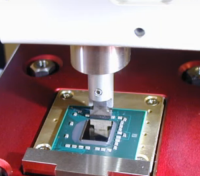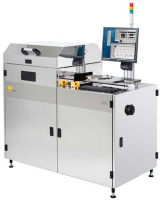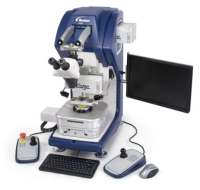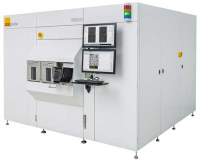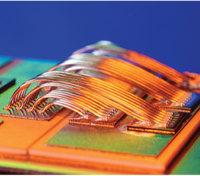Die Shear Test: Microelectronic Devices
Die Shear Test Overview:Die Shear Test Epoxy, Solder and Sintered Materials etc.Die Shear Testing Methods in accordance with MIL STD 883Shear Test up to 200Kg (Bond Test) & 1000Kg Materials TestSelf-aligning Shear ToolsLow Profile Shear for Thin DieHeated Die Shear
Die shear test is used as a process control method on semiconductor and related microelectronic devices, to determine the adhesion and bonded area of bare die attached using a range of media, including epoxy, solder, sinter materials etc., to various substrate materials such as metal leadframes, ceramic packages, PCB substrates etc.
Die shear testing parameters (test speed, tool height etc.) are similar to those used for Ball Bond Shear and testing is performed in accordance with MIL STD 883.
The principle behind die shear bond testing is to apply a wedge shaped shear tool perpendicular to the materials top surface and parallel to the longest edge of the die (if practical). Self-aligning shear tools ensure the die is kept parallel and thus the load is spread as evenly as possible during the shearing process. Shear tools should be at least as wide as the object being tested. The test object is then moved against the shear tool until the bond interface or test object fails (destructive testing), or a pre-defined force is reached (non-destructive testing).
Dependent upon the die attach and substrate materials used, bond adhesion can also degrade when exposed to higher and/or lower temperatures. It is therefore recommend that bond strength should also be measured and qualified as a function of temperature.
PreviousNext
Further Information
File
Knowledge Base: Understanding Shear Testing
Download
File
Nordson-DAGE Bond Testing Equipment
Download
Visit the Inseto (UK) Ltd website for more information on Die Shear Test: Microelectronic Devices

